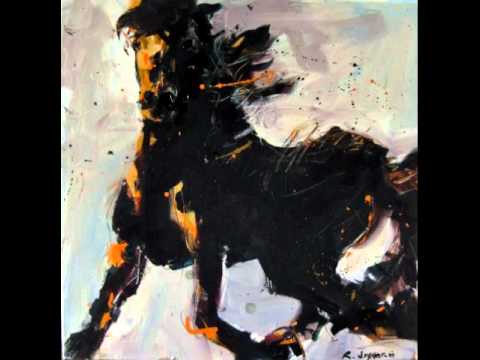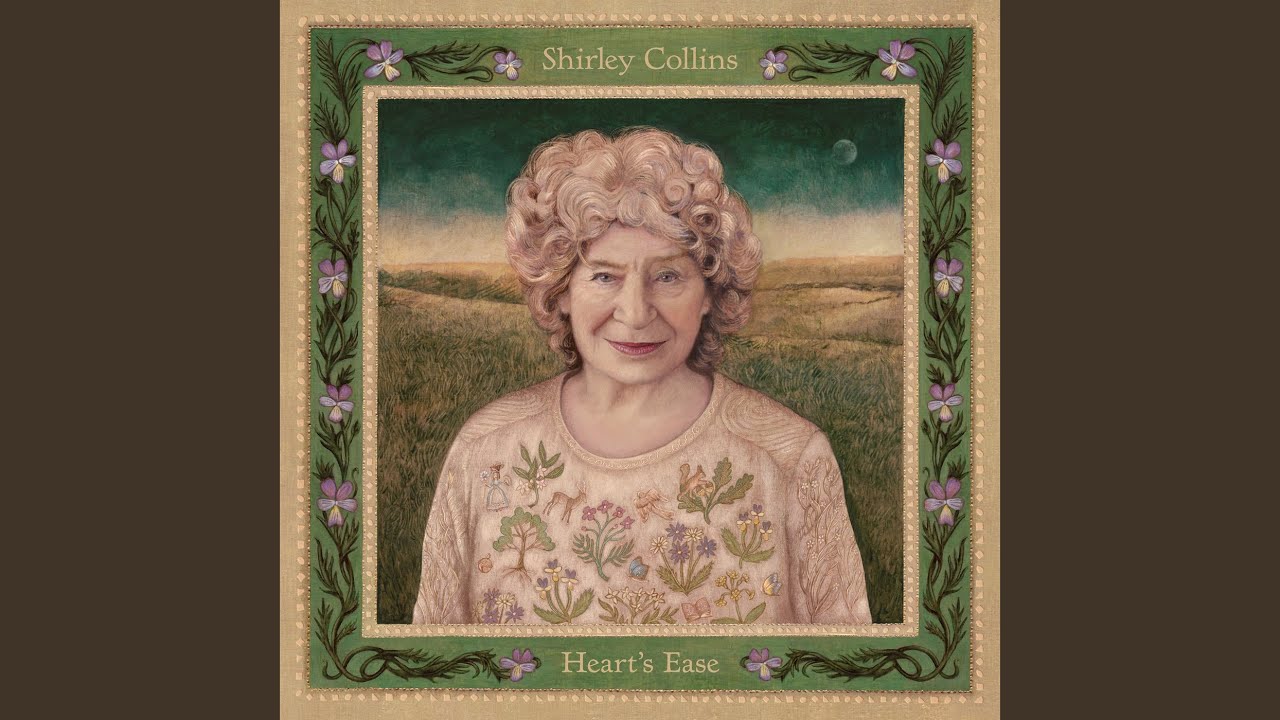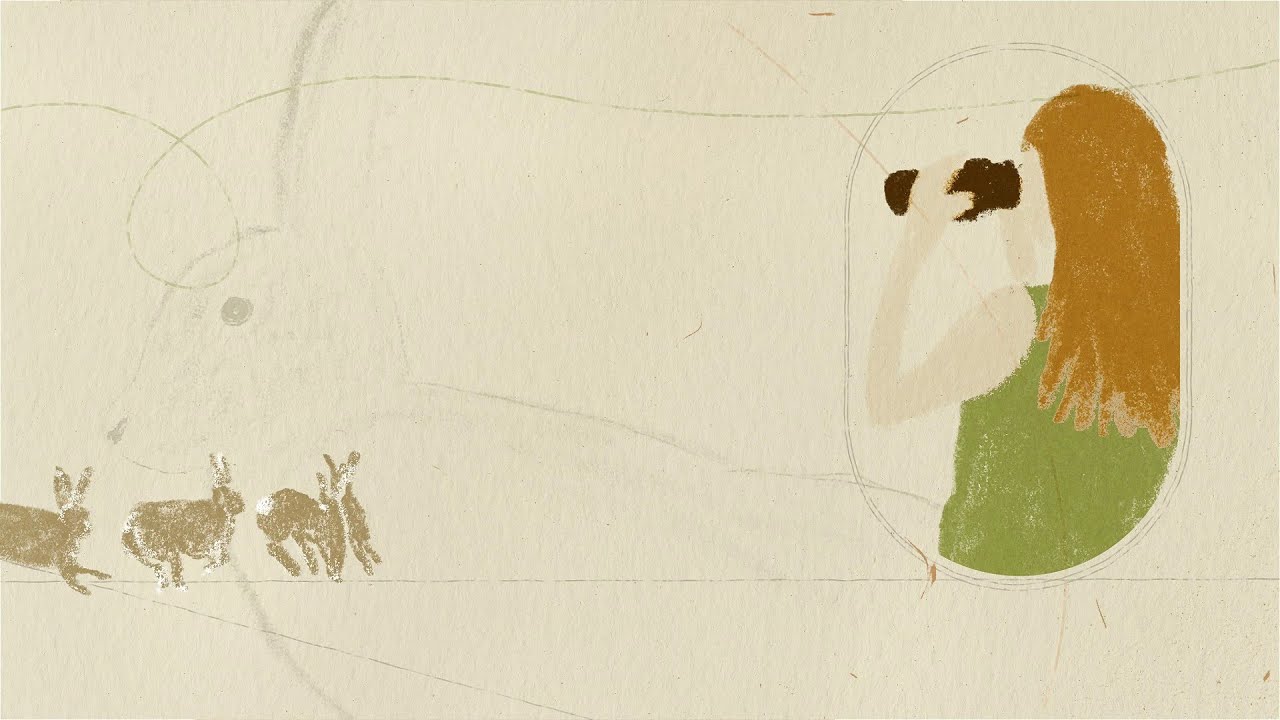"Are you telling me you’re secretly naughty, Jude?" Turning 88 in July, and releasing her third album in seven years this month, Shirley Collins is in an impish mood. This is standard. We’re discussing the rebelliousness at the heart of her life as a carrier and disseminator of traditional songs; many of them are repositories of naughtiness themselves. "I like songs that you don’t know are approving or disapproving", she replies, her tone a mixture of curiosity and mischief down the landline from her little cottage in Lewes. "I like the mystery of them."
It’d be easy to think of Shirley as the twinkly great-grandmother of English folk music from the lovely publicity photographs for her last trilogy of albums: 2016’s Lodestar, 2020’s Heart’s Ease and now Archangel Hill, a woozy, very moving, thirteen-song set. Don’t be fooled. In real life, she balances her sweetness with a bloodily dogged determination to bring ears to songs about past working-class lives. She’s tackled the grim stuff often: multiple murders, suicides, as well sex and lust, over her nearly seventy-year recording career. Archangel Hill features songs about child abduction (‘Lost In The Wood’), hangings (‘Oakham Poachers’) and sneaking off with a sailor she fancied (‘The Captain With The Whiskers’).
It also features one of Collins’ last recordings before her decades-long absence from live performance (‘Hand On Heart’, recorded in 1980 at the Sydney Opera House), after which she suffered dysphonia for many years, brought about by the traumatic breakdown of her marriage with folk musician Ashley Hutchings. Her milkman and Royal Artillery soldier father had also left her mother when Shirley was a teenager, to live with another woman and her family a few streets away (sending his daughters stockings stamped “substandard” for Christmas every year, he only saw them once again at a concert in Southampton in 1967). A poem he wrote while he was away with the Royal Artillery during the Second World War, a love-letter to his daughter’s beloved Sussex, is the album’s eponymous final track. Other songs on her album recall the family that held her tight: ‘Bonny Labouring Boy’, a song her granddad, Fred Ball, sang to her as a child, and ‘Fare Thee Well My Dearest Dear’, which she recorded with her late sister, the composer, pianist, portative organ player and gardener, Dolly, on their 1976 album, Amaranth.
Finding out about Collins’ adventurous life away from her songs is also recommended. She’s written two beautiful memoirs: 2003’s America Over The Water, expanded and reissued last year by White Rabbit, and 2018’s Penderyn Prize-winning All In The Downs for Strange Attractor. The lyrical 2017 film The Ballad Of Shirley Collins also reminds us of the girl who fled teacher training college at 18 to become a folk singer in London, living on buns and tinned soup to scrape together money to buy books of Appalachian songs, then meeting American folklorist Alan Lomax, two decades older than her, and becoming his recording assistant and on-off lover. Their 1959 journey collecting songs in Black and white communities across the Deep South is rightfully legendary, and be reminded that Collins has 40 entries as a technical worker on Discogs, taping many other traditional songs with Alan, helping put together influential anthologies such as 1961’s Folk Songs In Britain, a key album in the mid-century folk revival, up to the 2012 collection of travellers songs, I’m A Romany Rai.
Her stark – sometimes sour, often sweet – Sussex voice was heard live again in 2014, having deepened and roughened majestically over the years. Few would have expected Shirley to be the support act at the Union Chapel that night at a Current 93 gig, but her long friendship with David Tibet, and her commitment to expanding her genre outwards through curiosity and experiment, without smothering songs in layers or ego or ornament, stood her in good stead.
She’s always vowed to remember the ordinary people who originally sang these songs, and convey how their human emotions pulsed and coursed, as human emotions still do. “I’ve always felt that the working classes – especially the working classes – are left out of history, with nothing written about them at all,” she says. "And these songs that were their songs, just sort of give you some clues as to what was really happening in their lives. I still think it’s quite important to be able to put their messages in front of people as well, along with the beauty of the songs themselves.”
’Turpin Hero’ from Sweet England (1959)
<iframe style="border-radius:12px" src="https://open.spotify.com/embed/track/6wR9oRVPMN1LJ1UF68fI34?utm_source=generator" width="100%" height="352" frameBorder="0" allowfullscreen="" allow="autoplay; clipboard-write; encrypted-media; fullscreen; picture-in-picture" loading=“lazy">
Shirley Collins: I chose to sing this on my first record, recorded in the basement of Cecil Sharp House and [folklorist] Peter Kennedy’s living room nearby because it takes me back to when I was eight, at school. My teacher played it on the piano and I remember thinking to myself, ‘That’s an English tune’, and knowing that having that thought was a bit odd, but being able to recognise stuff like that says a lot about who I became! I was so thrilled to be recorded, but listening to it now, I do groan [laughs]. You can hear the Sussex accent that my headmistress was trying to make me lose – I was trying to be a bit posher, but thankfully I didn’t quite make it. This is probably a very truthful representation of what I was like then. I knew nothing except that I loved this music, so I had a leap of faith and jumped into the deep end.
’Space Girl’ from Rocket Along: New Ballads On Old Lines (1960)
SC: Ewan MacColl had written this, and of course, I was going to pick it up. It was fun, with rather clever lyrics, and also was kind of sexy in a way, plus I could do this American [sings, with a twang] dah-dah-dah-dah! I mean, it’s nice to have a break from serious songs and to be a space girl as well, but the MacColl set weren’t keen on me, as I’ve said before. Just imagine the presumption of a girl from the same class of people from whom the songs had been taken down over many years wanting to sing them! I also didn’t fit into the wider folk scene because then it was all skiffle and I was so disapproving of it. The way Lonnie Donegan would say Leadbelly songs were his – it was awful. I still can’t bear to hear a double bass [laughs]. I was alone, really. I didn’t move around with a gaggle of people. I just sort of kept to myself and was quite happy with it.
Shirley Collins and Davy Graham – Folk Roots, New Routes (1964)
<iframe style="border-radius:12px" src="https://open.spotify.com/embed/album/6N65Xp9Dg2aZfEV9EksF80?utm_source=generator" width="100%" height="352" frameBorder="0" allowfullscreen="" allow="autoplay; clipboard-write; encrypted-media; fullscreen; picture-in-picture" loading=“lazy">
SC: My first husband, Austin John Marshall, was a graphic artist who hardly came home in the evenings because he’d always go to jazz clubs, and I hated jazz with a passion. But one night, he said, I think you ought to meet this young guitarist, so I agreed. David came over and he played his version of ‘She Moves Through The Fair’, and it had all these Irish qualities in it, but also African and Arabic influences, and it all worked so well. He was also such a nice bloke, with such gentle manners, so I said yes. We recorded the album in two days in the huge Decca studios – there’s a photograph of me somewhere with me at one end of the room perched on a stool, which is the worst way to sing for me possible, and Davy at the other.
Shirley and Dolly Collins – Anthems In Eden (1969)
<iframe style="border-radius:12px" src="https://open.spotify.com/embed/album/7z8CkiCONeL8hM7A9S4f03?utm_source=generator" width="100%" height="352" frameBorder="0" allowfullscreen="" allow="autoplay; clipboard-write; encrypted-media; fullscreen; picture-in-picture" loading=“lazy">
SC: Dolly was such a talented composer and arranger, not clever like Benjamin Britten, carving up folk songs and putting them around in a different order. She understood how sounds could support songs, and we worked on this album with David Munrow, who did BBC TV and radio programmes about early music – Dolly and I used to go to the Early Music Centre together all the time. David was gentle, but also really crackled with energy, and just lifted your spirits constantly. I was devastated when he died [he killed himself in 1976]. I wish he was remembered more. Dolly and I were on the Harvest label for this album and played a gig at the Roundhouse with their bigger bands. I can’t remember who now [in several earlier interviews, she’s mentioned Deep Purple and the Edgar Broughton Band]. And we got heckled! I gave my spirited best back, and – hooray – we got the audience on our side.
Shirley Collins And The Albion Country Band – ’The Murder Of Maria Marten’ from No Roses (1971)
SC: This was my big folk rock moment and I loved it, recording in Sound Techniques in Chelsea, a former dairy, with such a great gathering of musicians for the album [25 are listed on its cover, including Lal Waterson, Lol Coxhill and Richard Thompson]. lt’s an execution song, by which I mean, before the condemned person was executed, this song would have been sold on sheets of paper. Executions themselves were attended by thousands of people. That was the entertainment you got in those days! But the power of leading that band didn’t quite go to my head [laughs]. Still, I think I sang really strongly on that album and thoroughly enjoyed myself with it.
Shirley And Dolly Collins – ‘Gilderoy’ from For As Many As Will (1978)
SC: My favourite song. I couldn’t live without knowing Gilderoy. How is a song about a man who is accused of either robbing cattle or absconding with women so beautiful? You have such compassion for the bloke being sung about, and for his sweetheart. This version started life in the north of England or Scotland and worked its way down the country, finally being collected in Sussex from Henry Burstow, a shoemaker in Horsham, by Lucy Broadwood, at the turn of the 20th century. Henry wrote Lucy a letter thanking her for recording him, which I found as a young woman in the Cecil Sharp House library. Lucy’s papers were being neglected, chewed by mice, so I put the letter in my handbag. A few years ago, I gave it back to the librarian, Malcolm Taylor when he retired, and it went into a safe. I now think nobody’s ever going to see that again, so I really regret doing that. The double tracking on this version of the song was something I did because my voice was starting to go, but I love it now. It was such a tough time. I’ve never sung it again. Why? Because I couldn’t do it any better. I think I nailed that one.
Current 93 with Shirley Collins – ‘All The Pretty Horses’ from Calling For Vanished Faces (1999)
SC: I think I first met David when I was running the Oxfam shop in Brighton. From the start, he was such a supporter of mine. He said you are one of my two favourite singers, and the other one is Tiny Tim [laughs]. He also helped me out financially a bit by buying things from me, some of which I do regret parting with, but I needed the money. And now we’ve become such good friends. It was him who made me sing live again, of course, and now here we are. I can’t remember recording this – I think I finally said yes because of pressure – and I wasn’t happy with it, of course. At that time, I still felt so much upheaval and grief after Dolly died [suddenly, at 62, in 1995]. I just didn’t think I could sing. It’s such a strange song because it’s a lullaby, but then it talks about bees and butterflies pecking out the eyes of a sheep, and you think, what’s going on here? I think it’s in the voice of an American woman who has had a baby a year and is being worn down by it.
’Awake Awake/The Split Ash Tree/May Carol/Southover’ from Lodestar (2016)
SC: ‘Awake Awake’ had lain dormant for hundreds of years until 1909, which I find extraordinary. It was written by ballad-writer Thomas Deloney when the Great Earthquake in London toppled part of old St Paul’s Cathedral in 1580, then Vaughan Williams collected it from the singing of Caroline Bridges in Pembridge in Herefordshire. This was the first song on my first album back, and putting the whole track together was so relaxed, things were suggested and tried gently, and it all magically worked. ‘The Split Ash Tree’ came along with the hurdy-gurdy, then we added the Morris tune at the end, written by Glen Redman, who’s our heartthrob Morris dancer! It was just such fun discovering things, like there was a crack of light getting brighter and brighter and brighter as we went on.
’Locked In Ice’ from Heart’s Ease (2020)
SC: This was a song by my late nephew Tom, Dolly’s son, about a wreck of a ship at the North Pole. When Tom sang it, it was quite hard and quite rocky, but I slowed it right down, having the thought of this little boat being sort of blown hither and yon and having no real sense of its purpose anymore, which is just taken by the tides. I felt an affinity to it, and I couldn’t resist singing it – and only Tom had recorded it. You can honour a person in a way when you sing their song, I think. And why shouldn’t other people hear it? Come and learn a bit about Tom Buzby, my sister’s son. Some lines of this were taken for ‘Crowlink’, the album’s last track, which was done without me, with all its sounds of the wind and the sea. Some people find it quite fascinating, but I can take it or leave it, really. It’s not bad.
’Hares On The Mountain’ from Archangel Hill (2023)
SC: This has always intrigued me, ever since I first sang it [on 1959 album Sweet England] and then again a few years later [on 1964’s Folk Roots, New Routes]. You’re never quite sure what it’s about. Is it about women treading down on men or about something more magical than that? It’s such an intriguing song, and it still resonates with people. Bridget Christie, the comedian, a great supporter of mine, alongside her husband, lovely Stewart Lee, has picked it as the theme for her new BBC series, The Change, a comedy-drama which starts in a few weeks, which is very lovely. And oh goodness, Radie Peat from Lankum singing it… well, I could listen to Radie Peat singing it forever. I love the video that has been made for it now, and it was just lovely to sing it sort of secretly for this album. Quietly. In my own way.






